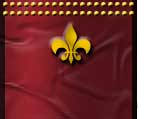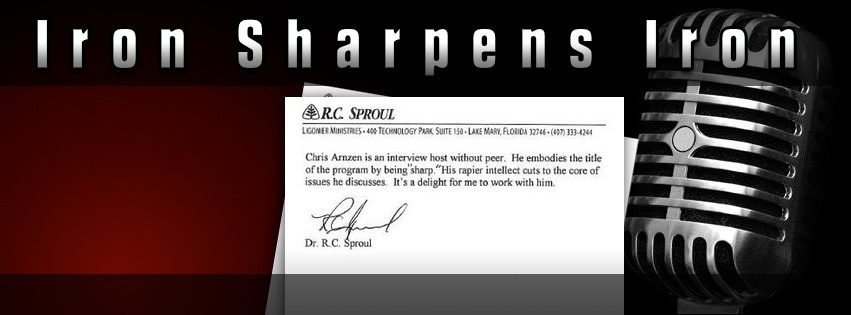




 |
|||||
 |
THE CHILD AT HOME: Living to Please God and Your Parents
John S.C. Abbott![]()
"This book is intended for the children of those families to which 'The Mother at Home' has gone. It is prepared with the hope that it may exert an influence upon the minds of the children, in exciting grattitude for their parents' love, and in forming characters which shall ensure future usefulness and happiness." - From the author's Preface![]()
John Abbott (1805-1877) was the brother of Jacob Abbott and the author of numerous works especially for children and young people. He was educated at Bowdoin college and Andover theological seminary, graduating from the former in 1825. He was ordained to the ministry in the Congregational church in 1830, and was settled successively at Worcester, Roxbury, and Nantucket, Mass. His first published work, "The Mother at Home," appeared in 1833, and was followed later that year by "The Child at Home." In 1844 he relinquished the pastorate, and devoted himself exclusively to literature, but occasionally resumed his ministerial labors for brief periods, and in 1866-'8 acted as state supply in New Haven. ![]()
"In a moving, illustrative way, Abbott's The Child at Home powerfully cultivates within children's consciences the need to honor God and their parents by promoting the need for heartfelt obedience, religious truth, genuine piety, biblical character traits, a sense of responsibility, and a dread of deception. The dozens of stories included make this book understandable for even very young children, while simultaneously retaining the interest of teenagers. Buy this book for every one of your children; better yet, read it aloud to them and discuss its contents together as a family." --Dr. Joel R. Beeke, Puritan Reformed Theological Seminary![]()
PART OF THE ABBOTT TRILOGY![]()
SGCB PAPERBACK SETS![]()
$5.00 Child's Book c50 fam24 ABBTR![]()
Nearly 45% Discount![]() SGCB Price: $9.95 (list price $16.00)
SGCB Price: $9.95 (list price $16.00)![]()
Order with "The Mother at Home" and "The Family at Home"![]() SGCB Price: $30.00 (list price $60.00)
SGCB Price: $30.00 (list price $60.00)
50% DISCOUNT WHEN ORDERING THE TRILOGY![]()
Additional Information
• Author's Preface
• The Story of the Cover Image
| The Story of the Cover Image |
The cover image was chosen for this book in honor of one of the heroes described in Chapter Three. Casabianca died on the ship pictured on the cover because he refused to abandon the sinking ship without the word of his father, the Captain of the vessel. You will read more of him in this precious book, but the story of the ship and its sinking is as follows:
When the government of revolutionary France received General Napoleon Bonaparte's proposal for an invasion of Egypt, they accepted with alacrity. If successful, the venture would threaten British interests in the Middle East and India. Whatever happened, it would send the ambitious and popular young Corsican on an expedition thousands of miles from Paris, from which he might never return. Consequently, an army was embarked in Toulon and set sail for Malta on 19th May 1798. Landing virtually unopposed, they overthrew the moribund Knights of St John and established a French garrison in their place. Laden with loot from the Maltese churches and castles, they then set sail for Egypt. One foggy night they passed within a few miles of Nelson's pursuing British fleet, but managed to escape detection. On the night of 30th June the French army landed at Marabout Bay, 7 miles from Alexandria which they captured the next day. With barely a pause, Napoleon turned his attention to the interior and embarked on a grueling 19 day march southwards. After winning a spectacular battle in the shadow of the pyramids he captured Cairo and began to establish a government for Egypt.
Meanwhile the French fleet, under the command of Admiral Brueys, had moved along the coast to Aboukir Bay-- Alexandria's harbor being too shallow to accommodate his warships. The fleet was in a bad way--under-manned and short of supplies--Brueys anchored his thirteen Ships of the Line along the western edge of the bay and sent many of his sailors ashore to find food and other supplies.
For all this time Rear Admiral Sir Horatio Nelson's British fleet had been cruising the Mediterranean seeking news of the French. They had already visited Alexandria once, leaving the city 25 hours before the French had arrived to search elsewhere, it wasn't until nearly a month after Napoleon's landing that they discovered their mistake. Reaching Alexandria on the 1st August they split up to find the enemy, locating Brueys' ships at 2:45. Brueys expected Nelson to gather his fleet for a battle the following day--as fighting amongst the shoals of the bay in failing light would be very risky. Nelson, who had already lost an eye and an arm in the service of his country, thrived on such risks--he directed his ships into the fray without delay.
The British fleet sailed steadily towards their opponents, led by the Goliath. When only 200 yards from the head of the French line, Goliath's captain, Thomas Foley, observed that they had anchored their ships just far enough into the bay to allow a ship to pass on the landward side. To the horror of his opponents, he steered his ship into this narrow channel, blasting the head of the French line as he did so. Four ships followed Foley, whilst the remainder tackled the seaward side with Nelson. From this moment, the French fleet was doomed. Hemmed in by shallow water and adverse winds, they could not maneuver or bring most of their guns to bear on the enemy. The British were able to sail down the line picking off their opponents one by one. Some of the French ships had stores and provisions piled up against the gun-ports on their landward side--meaning they couldn't fire at Goliath and her followers at all, whilst under manning and lack of training weakened what firepower they were able to employ.
At the height of the action, a piece of shrapnel struck Nelson in the head. Stunned by the blow and believing himself to be mortally wounded, he was carried below by his men. The Admiral was not a man to pull rank in the station, and waited his turn to be treated. When the surgeon examined the wound he found it to be relatively minor--a deep gash had cut Nelson literally to the bone and caused a flap of skin to fall over his one good eye. Once bandaged up Nelson was able to stagger back on deck in time to see the climax of the action.
The pride of the French fleet, L'Orient, one of the biggest warships in the world, had caught fire and was burning out of control. As the flames began to engulf the French flagship, the 10-year old son of its commander, Captain Casabianca, was determined not to abandon his post without orders to do so from his father. The orders never came. The fire spread to the ship's magazine, causing a massive explosion that was heard 12 miles away in Alexandria. The youth and many of his shipmates perished in the blast. His devotion to duty was immortalized in Felicia Hemans' poem Casabianca:
"The boy stood on the burning deck,
Whence all but he had fled..."
The fighting carried on into the night and on into the next morning. In the end French fleet was almost totally destroyed, with only two of the original thirteen ships remaining. Napoleon was stranded in Egypt and, though he would win several dramatic victories on land, his weakness at sea doomed the Egyptian expedition to eventual failure. Nelson was made Baron Nelson of the Nile and Burnham Thorpe and sailed on to the adulation of his country and eventual apotheosis at Trafalgar seven years later.
Solid Ground Christian Books is delighted to introduce this reprint, "The Child at Home", confident that it will be used to the eternal benefit of multitudes of children and parents. Soli Deo Gloria!
The Publisher
January 2005
